Hey, Team Titleist!
Have you ever wondered what goes on inside the ropes between a PGA Tour player and his coach? Well, if you've ever wanted to be a fly on the wall when a world class teacher works with one of the best players on the planet, have we got a surprise for you!
We recently joined Titleist Brand Ambassador Max Homa as he worked with his coach,Titleist staff member and 2020 PGA Teacher of the Year, Mark Blackburn. Max and Mark allowed us to roll cameras as they sharpened Max's full-swing technique. Check out the video above for an exclusive glimpse into their process and read on as Mark talks about Max's game and provides some unique insight into the relationship between coach and player on the PGA Tour.
Q: Mark, Max's most recent win came at the 2021 Genesis Invitational. What do you recall from that victory?
Mark Blackburn: Max was playing well during the west coast swing and coming into Riviera. He was swinging well, so my goal was to have him hit golf shots rather than get caught up on swing mechanics. In an effort to play the golf course we used the mantra "Position Over Perfection”, so he was just trying to get the ball into the right spot on each shot to optimize his scoring potential.
Q: When you do address mechanics, what are some of Max's tendencies?
Mark: Most of our focus on Max’s game tends to center around his backswing and the overall rhythm and tempo of the swing. Max has a tendency to get quick in transition which negates all the work he does in the backswing.
Q: How much contact did you have with Max over the weekend at Riviera, as he played his way into contention?
Mark: I was with Max all week so the focus was just to keep playing golf, knowing he would get his run of holes. I left him after the warmup Sunday at which point Max & Joe (Max's caddie, Joe Greiner) had it all under control. My goal is to prepare players with the tools they need to be successful on the course. Once they tee off, its on the player and the caddie to navigate the chaos!
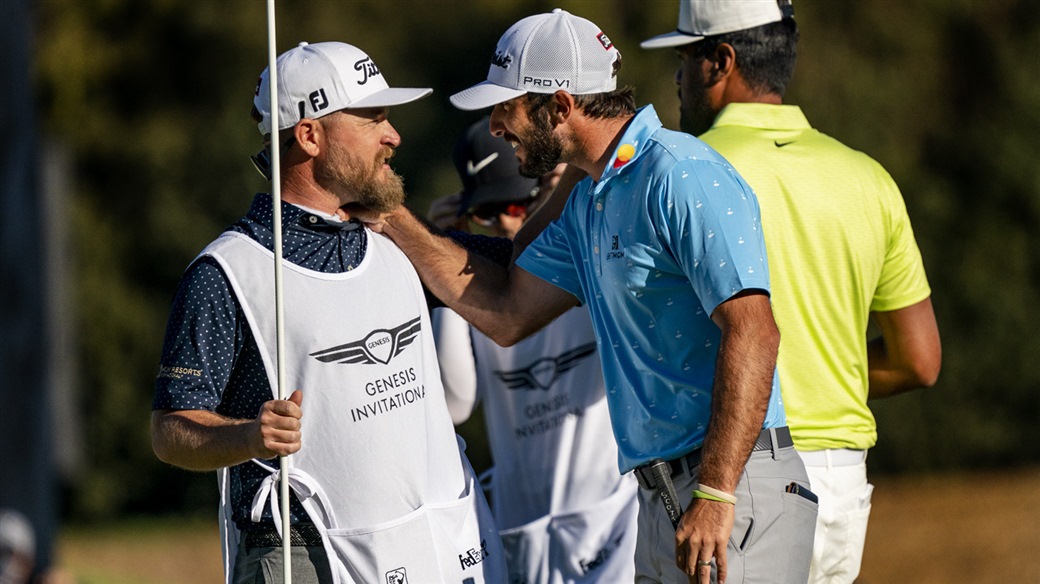
Q: How did you meet Max and how did you start working together?
Mark: I’ve known Max for a long time. I worked with Andrew Putnam when Max was on Web.com tour. Then Joe and I worked together when I coached Kevin Chappell, so when Max missed the cut at Winged Foot during the 2020 U.S. Open, Joe suggested to Max to have me take a look. We worked that day and then things progressed from there with Max visiting me in Birmingham in November, 2020 ahead of the Mayakoba event in Mexico and we haven’t looked back since.
Q: What are some strengths that you admire in Max's game?
Mark: Max has a fantastic demeanor under pressure. He's very calm, which is why he excels when he gets in contention. He’s become a fantastic wedge player and improved his driving and iron play immensely. With work in the gym he’s now picking up speed too.
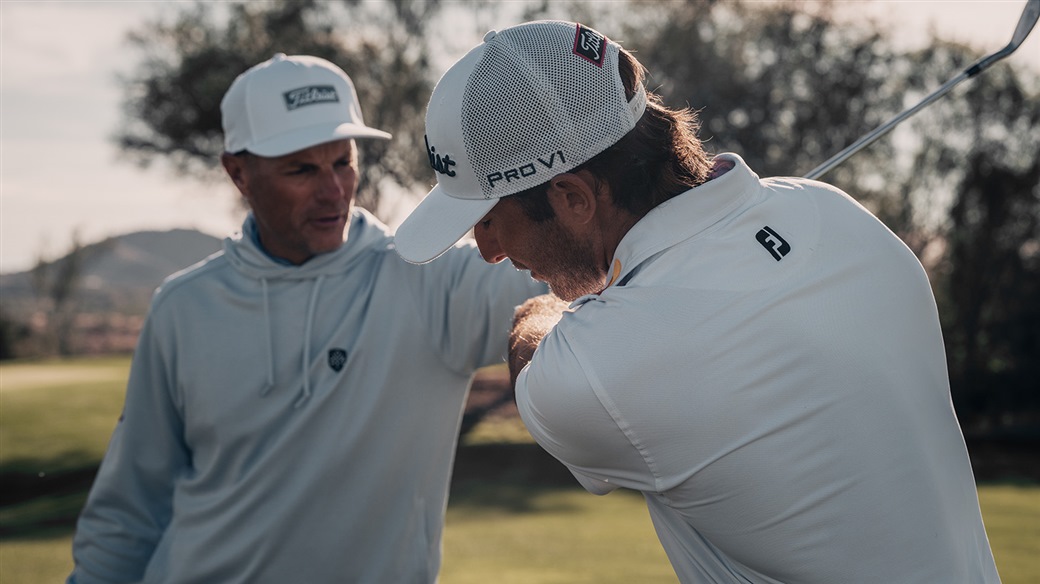 Q: Since you began working together, what are some of the things you've focused on to improve?
Q: Since you began working together, what are some of the things you've focused on to improve?
Mark: We first needed to develop a swing that matched his body and physical abilities. Max has limited shoulder flexion and tight lats - dumbed down, this means that he has trouble raising his hands over head while in posture. So now, on the backswing, we've got him flatter and deeper, with more structure. This allows him to swing while maintaining his dynamic posture.
We also focused heavily on Max's short game, his distance wedges and his driving – favoring a fade over a draw as his go-to shot. And we also refined the way Max shapes shots, relying on adjustments to setup and ball position, rather than hand manipulation.
Q: Is a physical assessment something you do with all your players?
Mark: Absolutely. Players need to get assessed/evaluated before embarking on any swing changes or instruction to ensure they can physically do what the coach is prescribing. I strongly advise all golfers to seek out a TPI-certified professional to get a physical screen. That will tell you what physical limitations you have that you can either improve upon or work around as you build better swing mechanics.
Q: In Max's case, what did it take for him to go from being an elite player to being able to win on tour?
Mark: Max was already a tour winner when we began working together. My job was to make him understand his swing and tendencies and what would work best for his body based on his physicality so that under pressure his swing would work effectively. I have also tried to make Max realize how good Max is.
Q: In general, is winning a skill that can be learned? Or is it more attributable to confidence that grows from the experience of winning?
Mark: Winning breeds winning. It's a skill you develop. Winners become more comfortable when the lights are bright and the music gets loud. The more able you are to find that calm in the storm, the more you will prevail victorious. You learn from mistakes, so closing is something you learn to master. It's kind of an art, to be honest. Max’s calm demeanor means he thrives when he's given an opportunity to win.
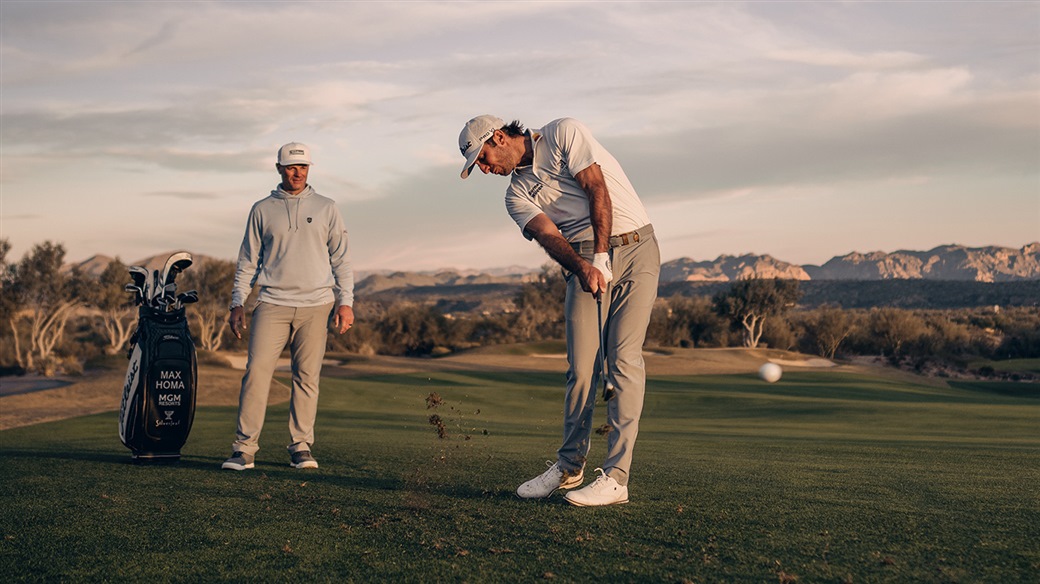 Q: What days of the week are you typically at Tour events? Do you have a Monday-Wednesday routine with players you coach, or is it more fluid, depending on what your students need?
Q: What days of the week are you typically at Tour events? Do you have a Monday-Wednesday routine with players you coach, or is it more fluid, depending on what your students need?
Mark: I typically attend Monday through Thursday. We practice Monday through Wednesday, I observe on-course Thursday and work after the opening round to make any adjustments. The majors and bigger events, I'm typically there through Sunday.
Q: What other players do you work with on Tour?
Mark: Some of the players I work with include Gary Woodland, Charley Hoffman, Chez Reavie and Trey Mullinax.
Q: During the Tour season, how do you balance swing mechanics and issues with technique vs. preparing a player to compete with what he/she has to work with that week? Do you save major technical work for the off-season?
Mark: I create a framework, a blueprint for each player based on their unique swing recipe and the ingredients that go into it. We're always working within that framework, so there are drills and practice plans to keep mechanics in check. Assuming those are within tolerance, it's about learning the golf course and working the strategy to shoot the lowest score that week. Major technical changes are done during off-weeks or in the off-season. But, if the initial blueprint is correct, that shouldn’t happen often, if at all.
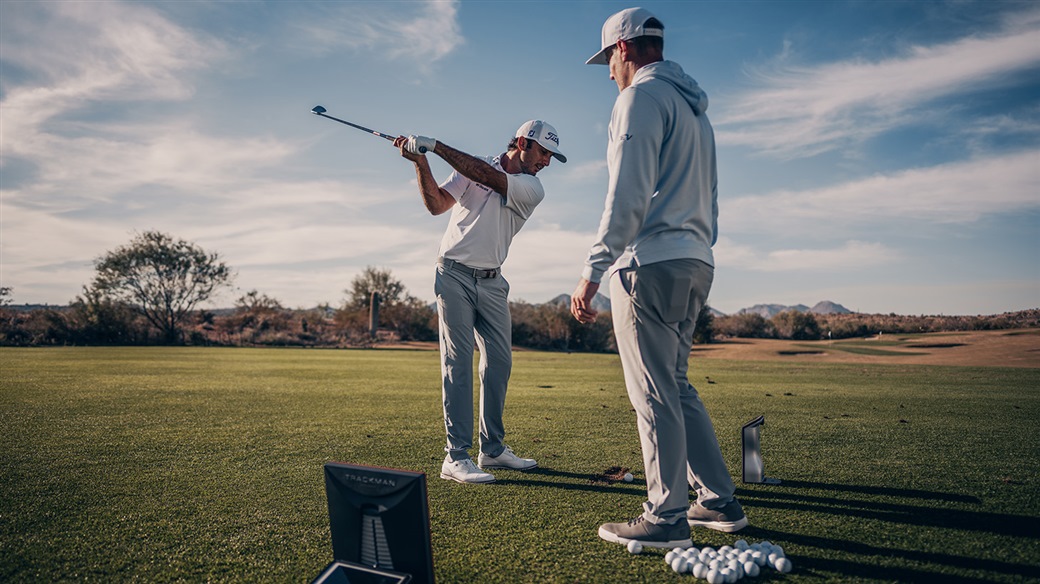 Q: Has your teaching evolved to utilize newer technologies, like launch monitor data, force plates, etc.? Is there a danger for players in relying too much on data like this or is it just how the game is evolving?
Q: Has your teaching evolved to utilize newer technologies, like launch monitor data, force plates, etc.? Is there a danger for players in relying too much on data like this or is it just how the game is evolving?
Mark: Technology expedites the learning curve for the student and allows the coach to make a better initial diagnosis. Understanding a player's metrics allows them to monitor them weekly which is very useful. Data is objective and I think golf technology is something that is here to stay. It makes us all accountable.
Q: What other professionals do tour players employ as part of their performance teams and how do you coordinate and collaborate with those various experts?
Mark: It's a team approach with all my players. Typically we have a medical professional, a trainer, psychologist, and on some teams a nutritionist and a putting and short game coach. I also work closely with equipment experts on the Tour van, like like Fordie, JJ and Aaron (Titleist's Fordie Pitts and JJ Van Van Wezenbeeck and Vokey's Aaron Dill) to make sure our players are optimizing their performance through clubs and a golf ball that best suits their game. We all share info and work towards the common goal of higher performance for the player.
Q: How do you balance the tour demands on your time with your responsibilities at The Blackburn Golf Academy at Greystone Country Club in Birmingham, AL? How many weeks a year are you on the road?
Mark: Our academy at Greystone has six full-time coaches. They do an amazing job with our coaching programs and individual lessons, so my absence does not change the experience for our members and guests. Greystone are amazing in supporting tour travel and I probably do thirty-five weeks a year on the road – although that’s not full weeks.
Q: Do you teach tour players and recreational amateurs differently?
Mark: I try to teach the person, so everyone is different. There are similarities in all golfers and major differences between what is essential at tour level vs. recreational golf.
Q: Do you get the same satisfaction from a successful lesson with an amateur that you do in helping a tour player?
Mark: Teaching and coaching is problem solving, which is what I love to do - taking a critical thinking approach and finding solutions. Fixing someone to be a better player is the reward regardless of skill.
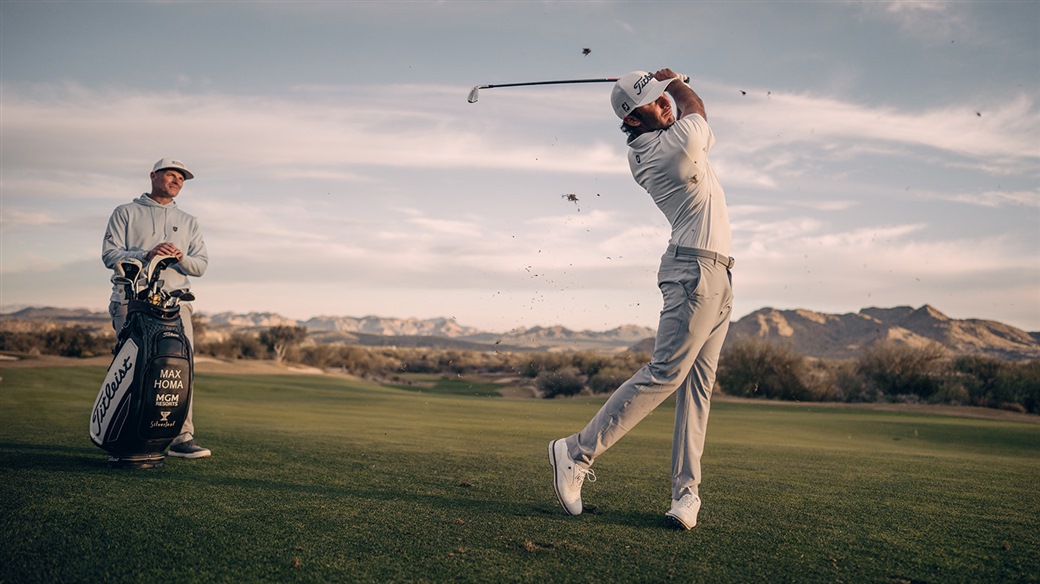 Q: In your experience, is there one skill or talent that separates tour players from amateurs?
Q: In your experience, is there one skill or talent that separates tour players from amateurs?
Mark: Tour players know how to score regardless of how they are hitting the ball. They make better decisions and hence have better outcomes. The compounding of those decisions allows them to gain positive strokes more often and yield lower scores! What a tour player does within ten seconds of looking at a lie an amateur can’t comprehend.
Q: What can amateurs learn from tour players? What should they NOT pay attention to or try to emulate?
Mark: Study the strategic and tactical decisions they make vs. the style of their swings.
Q: In 2020, you were honored as the PGA Teacher of the Year. How do you, as a teacher, continue to grow and improve?
Mark: Learning never stops as there will always be a better more effective way to teach and coach players. My quest is to be better today than I was yesterday, so education and exploration are essential to accomplish that goal. I like to look outside golf for the coaching skills of other coaches to better understand motor learning and control concepts across all sports. I think we are only in our infancy in understanding the neuroscience portion of performance, so that, too, is a focus of my study.
Q: Finally, what advice will you give to Max as he defends his Genesis title this week? Does the approach change?
Mark: Max is doing great things. It will be much of the same – Position over Perfection and avoid expectations, which are very tough to manage as reigning champion. But it's all about having fun and enjoying the moment!
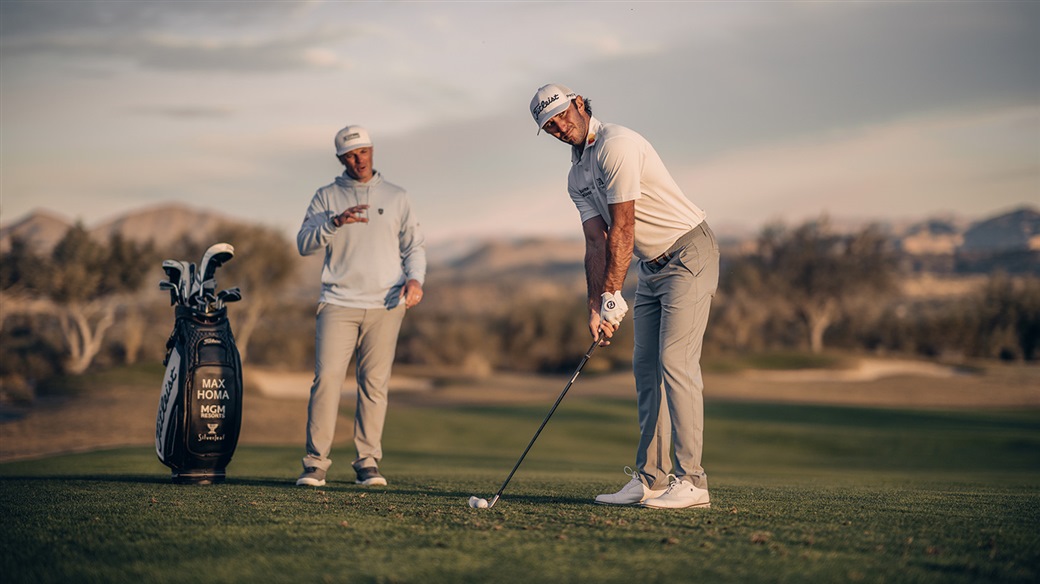
Thanks for inviting us inside the ropes, Mark!
For more tips from Mark, visit the Mark Blackburn page on the TItleist Instruction Center. And for more information on the Blackburn Golf Academy at Greystone Golf & Country Club, visit BlackburnGolf.com.
More Coach/Player Stories:
Mike and Justin Thomas: Coach/Player, Father/Son
#TeamTitleist